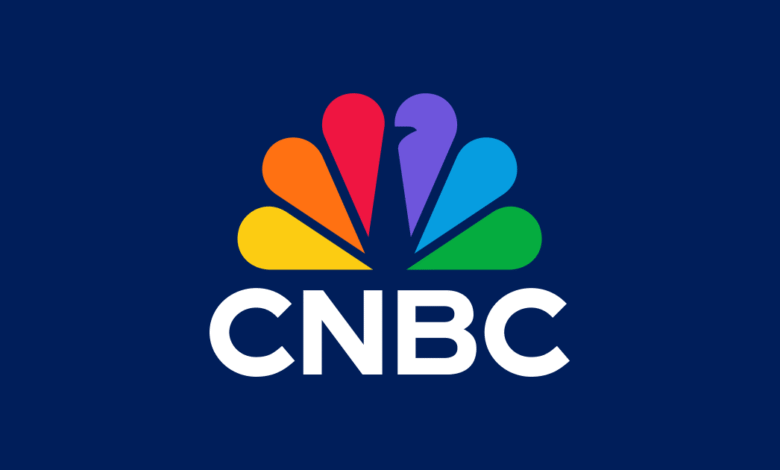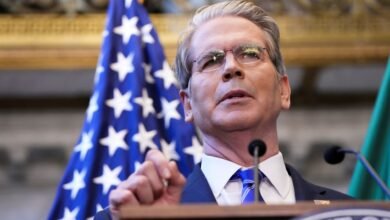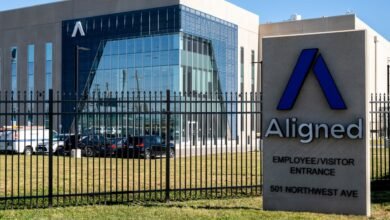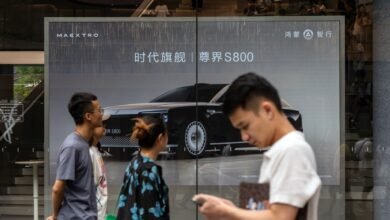CNBC’s Jim Cramer Sat Down with NVIDIA Co-Founder, President & CEO Jensen Huang Today for the CNBC Investing Club with Jim Cramer’s Monthly Meeting

Following is an excerpt from Jim Cramer’s interview with NVIDIA Co-Founder, President & CEO Jensen Huang that took place today during the CNBC Investing Club with Jim Cramer’s Monthly Meeting. The clip aired tonight on CNBC during “Mad Money with Jim Cramer” (M-F, 6PM-7PM ET). Video of the interview will be available on CNBC.com.
All references must be sourced to CNBC Investing Club with Jim Cramer.
HUANG ON OPENAI PARTNERSHIP, THE AI RACE, INTEL & MORE
JIM CRAMER: You’ve taught us that this is the fourth industrial revolution, and that there are room pretty much for everybody. So surprising that Lisa Su and AMD team up with OpenAI after you just teamed up, or welcoming to some degree because you need to have everybody doing this in order to make it so that you’re not the negating factor because you can’t make everybody’s chips.
JENSEN HUANG: We could try.
CRAMER: Alright but I mean AMD—
HUANG: Give us a chance. You can, you can count on me. You can count on me.
CRAMER: If Lisa were here, I think she’d say the MI450 is every bit equal to yours. And I would say I want to hear from Jensen because that’s a chip. You’re not a, you’re a platform, and you’re software. You’re loaded with software, and so therefore a piece of hardware may not be equal to infer total cost of ownership.
HUANG: We do, we do very different, we build some things that are similar in category, but we’re very different companies. You know, Nvidia started out as a graphic chip company, and over time, we became a computing platform company. And a computing platform company is largely software, and you have, you have a lot of developers and ecosystem that that create other software that sits on top of your computer. We became a computer platform company. When artificial intelligence came along, we realized that artificial intelligence are really large computers, and the entire data center is essentially one computer. And so we went off to work on distributed computing using multiple computers working together into one giant system. So networking matters, switching matters, tons of software is involved. And so today, when you, when you look at the computers we make, they’re, you know, a thousand acres large. It’s a giant system, hundreds of megawatts, you know, gigawatts at a time. And that’s, that’s the reason why a new industry has emerged. This industry requires factories that manufacture numbers which have, when reformulated, becomes intelligence. And so it’s an intelligence manufacturing factory, and that’s the, you know, this, this new, this new industry produces the most valuable thing the world’s ever known, intelligence, and and so our company, our company, builds these large infrastructures, and it’s got lots of technology inside the GPU, which we invented in 1996 I think it is, is one of the technologies inside, but there’s a whole bunch of technologies. And so we’re, we’re, we’re—
CRAMER: Different.
HUANG: Yeah, we’re different.
CRAMER: Let me ask you a question about the recent deal that you made with Intel. Now I know Intel from I knew Andy Grove and a person on the board who suggested that they do a deal, make a deal with a company that sounds a lot like you during the period when I know you were speaking to Andy and Andy was quite disrespectful, but that was his way. It just was his way. It’s not the way, it’s the way that he had himself, set himself up, frankly.
HUANG: Intel dedicated 33 years of our lives trying to kill us.
CRAMER: Right, and then a man who might have heard you make a—
HUANG: That was actually that was actually a mission.
CRAMER: But that’s absolutely true. I mean from my point of view, whatever, from a board member who said, listen, we have to destroy these guys. However—
HUANG: Not dead yet.
CRAMER: A new a company, a new man, Lip-Bu Tan comes in. I heard you give a testimonial to him in the 2022 Noyce Awards that was gracious, and it made me think, wow, there could be not only just a detente, but maybe one day they’ll be talking to each other. This is an important deal for you, isn’t it?
HUANG: You know, we’re lovers, not fighters. And it is true. It’s true that the it’s if you have an imagination about the future, it is possible to bring other people along. And I always like it. I always like it when we give a keynote, everybody’s stock price goes up. When somebody else gives a keynote, our stock price goes down. It says, it says, it says that that the way we see the world, the way we see the future, is inclusive for other people, and we create opportunities that brings other people along. Our our partnership with Intel is because I could imagine a future for the both of us where we could both win and and not one of us has to win, the other one to lose. And this partnership brings them into our ecosystem. And so they’re going to they’re going to build a custom microprocessor for us. We’re going to also build a custom microprocessor for a new market. And so there’s, there are two new products that comes along from this partnership. And and also, you know, we invested $5 billion in them, which is a, you know, no small amount.
CRAMER: There—
HUANG: Now, I’m an Intel shareholder.
CRAMER: Well, why not, I mean, you’re this big shareholder in—
HUANG: And ever since I invested, it went up something like 50% or something.
CRAMER: I mean, we don’t have, we don’t have an OpenAI valuation, but I think that there were a lot of people who questioned, they were trying to figure out whether some sort of circular nonsense obviously clearly from events not but what bothered me is, is that people don’t realize how good an investor you are. I actually have a friend who made a pitch in front of you, and they didn’t expect to see you. They expected to see minions, but you were there and you drilled them for three hours of questions. You make these investments, don’t you?
HUANG: Well, you know, it’s for us, we make good investments and the reason for that is because, well, first of all, we’re smart and but, but the reason why we invest is because we imagine, we imagine building something together. And so when we wanted to create a new type of cloud, we invested in a small company called CoreWeave, and then we helped them build themselves into a company, and they went public, and we made a fortune, and that was fantastic. It was great for them. It was great for us. Now we’re going to invest in OpenAI, potentially invest in OpenAI, it’s a great privilege, and I’m very grateful that they invited us to invest. But the partnership of OpenAI is really it’s incremental to all of the work that we’ve done with that we are doing with Azure and OCI and in CoreWeave, so we’re going to build up a whole bunch of capacity for computing for them because AI needs a lot of compute. This is, this is a partnership that, for the first time OpenAI’s going to buy directly from us. Usually they they buy, we, a cloud service provider buys from us, and they rent from a cloud service provider. And so now it’s going to be a direct partnership. We’re going to help them build an AI infrastructure that they operate themselves in and really set them up for, you know, five years out when they’re going to operate their own cloud anyhow. And so this is going to it’s a great partnership.
CRAMER: Do you think we’re all waiting for trade talks or have you gotten less optimistic than you were last time I talked to you that there’ll be something that allows let’s say commerce with us in China?
HUANG: Well, first of all, if there are any, you know, investors, all of our guidance assumes China zero. And so if anything works out with China, it will be a bonus for for us. And now China is a very large market, it’s a very important market. And but let’s take a step back. The policymakers want a great outcome for America and and they want America to win. The policies want, policymakers, President Trump wants America to win the AI race. This is an important technology period, and AI is going to be foundational and transformative to every single country and and President Trump wants America to win the AI race. And so the question is, is, how to do that? How to how to ensure that that American companies have all the best Nvidia technology and the best chip technology on the one hand, on the other hand, understanding that in order to succeed at AI, we really want the world to build on the American tech stack. Just as we want the world to be built on the American dollar, we would like the world to be built on the American tech stack, including developers in China. And so this, this is the that balance of, how do we ensure that American companies get the best technology on the one hand, but also on the other hand, provide the technology to Chinese companies so that China could be built on American technologies. And this, this finesse, this nuance, is a delicate balance, and this is where policymakers will have to wrestle with some of this. And and I, you know, I hope that, I hope that we find a good place. A complete ban is not not good for American companies long term. It might hurt Chinese companies, a complete ban, but it hurts American companies worse long term. And so I think this, this, this observation, this realization, and, and this, this, this nature of AI and the computer industry, I hope is understood and and that we can work this out someday, but until it gets worked out, I, we should just assume it’s zero, and I hope that we can get back to China someday.
CRAMER: I know you assume it’s zero, but you were optimistic that something good could happen. Do you still feel that way?
HUANG: Well, I’m always optimistic Jim.
CRAMER: Okay, fair enough, you are always optimistic.
HUANG: I’m always optimistic because—
CRAMER: And no, I buy into that. I’m not gonna just say—
HUANG: I’m always, I’m always optimistic. And because, because, on first principles, it makes sense for America to win. It’s a pro America policy. It’s great for American technology. If we, if America wants to win the global AI race, we need, we want the whole world to be building on American tech stack, just as we want, you know, the whole world to be building on on the internet that was really invented here in United States. We want the whole world to be building on Windows. We want the whole world to be building on, you know, AWS or Apple or we want, we want the whole world to be building on that. That’s a good thing. It helps American industry, helps American companies and and it builds, it allows, allows the world’s, every country to be built on American technology. That’s a good thing.
Credit: Source link






